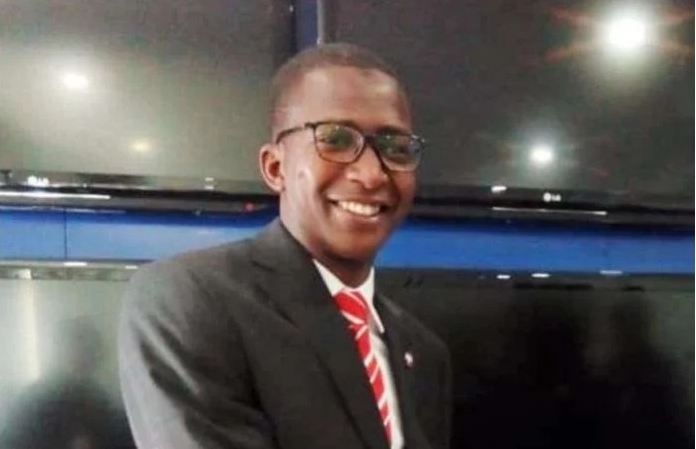The very setting of the confirmation hearing, which we wrote about last week, illustrates many thorns that will be on the side of any newly appointed chairman of the Economic and Financial Crimes Commission (EFCC), however his competence or integrity. It is not just the matter of fighting corruption professionally through a robust procedure, which is difficult enough, it is the politics of anti-corruption itself.
Politics, not law or policy, is the vehicle that drives the fight against corruption almost everywhere. In our case, this politics is manifested in so many different and complicated ways, that hardly any head of the EFCC can escape its implications.
First, there is the slippery nature of corruption itself as a political crime and the ambivalence this generates in our society. As Nigerians, we regularly condemn corruption in government. We talk about it with a sense of grief and frustration. Our newspapers write about it in hyperbolic headlines. Our politicians and others speak about it with exaggerated clichés. Yet, the attitudes, beliefs and actions which sustain and regenerate corruption in government are to be found in our society itself.
As a consequence, the EFCC and other anti-corruption agencies are fighting a crime, which perpetrators are not perceived as ‘criminals’, certainly not in the sense that, say, thieves, bandits or armed robbers are perceived as criminals in Nigeria. Instead, many persons accused of corruption are in fact, ‘important’ persons in the society and respected as such, culturally, politically and economically by the citizens. Accusation of corruption in the media or the courts against such persons does not significantly diminish their social standing among the populace, sometimes not even a dent.
If this is what former President Jonathan meant by his “stealing is not corruption,” then he was right. But the real implication of this for the head of the EFCC is that they will be applauded for going after the corruption of Mr X but condemned for going after Mr Y for the same offence. This is a major source of the controversy that has dogged the EFCC and its heads since inception, and one difficult to avoid.
Then there is the small but no less thorny politics of where to start. Corruption is not an isolated event you find here and there, or which bubbles to the surface every now and then in Nigeria. It is everywhere: in government, the private sector, even in the so-called non-profit civil society. So where do you start? In theory, it makes organisational sense to fight corruption forward rather than backwards, by dealing with new and future corruption cases as they arise, rather than being drowned out in an ocean of past cases.
Unfortunately, many corruption cases come to light only after they have occurred, or long after the perpetrators have left office. So, in practice, a lot of anti-corruption deals with cases that are already a few years old, which then increases the cost and complicates the chances of success in many ways. This is one reason we are likely to know more about corruption under the Buhari administration after he leaves.
But the practice in the EFCC is something else altogether. As I write, the agency has a document it calls ‘High Profile Cases.” There are 43 of such cases in total, all of them dating from 2007 to 2015. The alleged offences range from embezzlement and misappropriation of funds, money laundering, procurement fraud, oil subsidy scam and stealing of naira currencies that the Central Bank of Nigeria (CBN) had ordered burned. The alleged offenders include many former governors; several of whom were right there in the Senate during Malam Bawa’s confirmation, former and current ministers, top civil servants or their business associates.
Still, of the 43 cases, only two, those of former governors Jolly Nyame and Joshua Dariye have resulted in successful convictions. The third, that of former Governor Orji Uzor Kalu, was recently upturned by a unanimous vote in the Supreme Court, based on an important legal technicality. Of course, the EFCC has many more similar cases, not in the same document, but how it deals with these legacy cases will remain a thorn in its side since two successful convictions out of 43 high profile cases over a decade is not only poor return, but also feels less like justice to those convicted.
A third is the politics of numbers that the EFCC is so adept at playing in the media in the name of measuring its own performance or patting itself on the back.
In late 2019, to give a single example, the then acting chairman of the EFCC, Malam Ibrahim Magu, told reporters that his agency had secured over 800 convictions in just 10 months. In reality, this is both true and false. It is true that the convictions actually happened in various courts across the country, but the numbers merely flatter to deceive by creating the false impression that the EFCC is bringing corruption in Nigeria under control. No such thing is happening.
Of this huge number of convictions, you will struggle to find few that involved corruption in high places. Nearly all are convictions of cybercriminals and petty officials in public and private organisations stealing the crumbs that fall their way. Such convictions are useful, but they can hardly deter corruption. Perhaps the new EFCC regime will do well to measure performance by securing just two or three high profile convictions a year. In 10 years, we will have 20 to 30 governors, senators, ministers, directors and permanent secretaries, chief executive officers and so on behind bars. That message could deter corruption better than locking up petty criminals.
Finally comes the thorniest of all: the relationship between the EFCC chairman and the Attorney General of the Federation and Minister of Justice at any given time. The law in this relationship is crystal clear. The attorney-general is the chief legal officer for the federation, with a responsibility for all federal law enforcements, including those being enforced by the EFCC or any anti-corruption agency. But in corruption matters, the law is often less significant than the politics. And the politics in this specific instance usually boils down to the personalities of the occupants of both offices.
Where both are very assertive of their roles, the stage is set for a political showdown between the two, usually ending with the fall of an EFCC chairman as we have seen in the cases of Attorney General Michael Aondoakaa and Malam Nuhu Ribadu, and more recently, between Attorney General Abubakar Shehu Malami and Malam Ibrahim Magu. Perhaps this is needless politics. Everyone knows that the U.S attorney-general, for example, has an overall responsibility over the Federal Bureau of Investigation (FBI). But everyone also knows that U.S attorneys-general never interfere with the FBI, and certainly not with its director, never mind Trump.
Unlike Mohammed Adoke, who allowed both Farida Waziri and Ibrahim Lamorde a relatively free reign, the current attorney-general has delivered a clear message that he is the lord of the legal manor. How the new EFCC chair works around this and other thorny issues is left to be seen, but the job is sure not be envied.

 Join Daily Trust WhatsApp Community For Quick Access To News and Happenings Around You.
Join Daily Trust WhatsApp Community For Quick Access To News and Happenings Around You.


